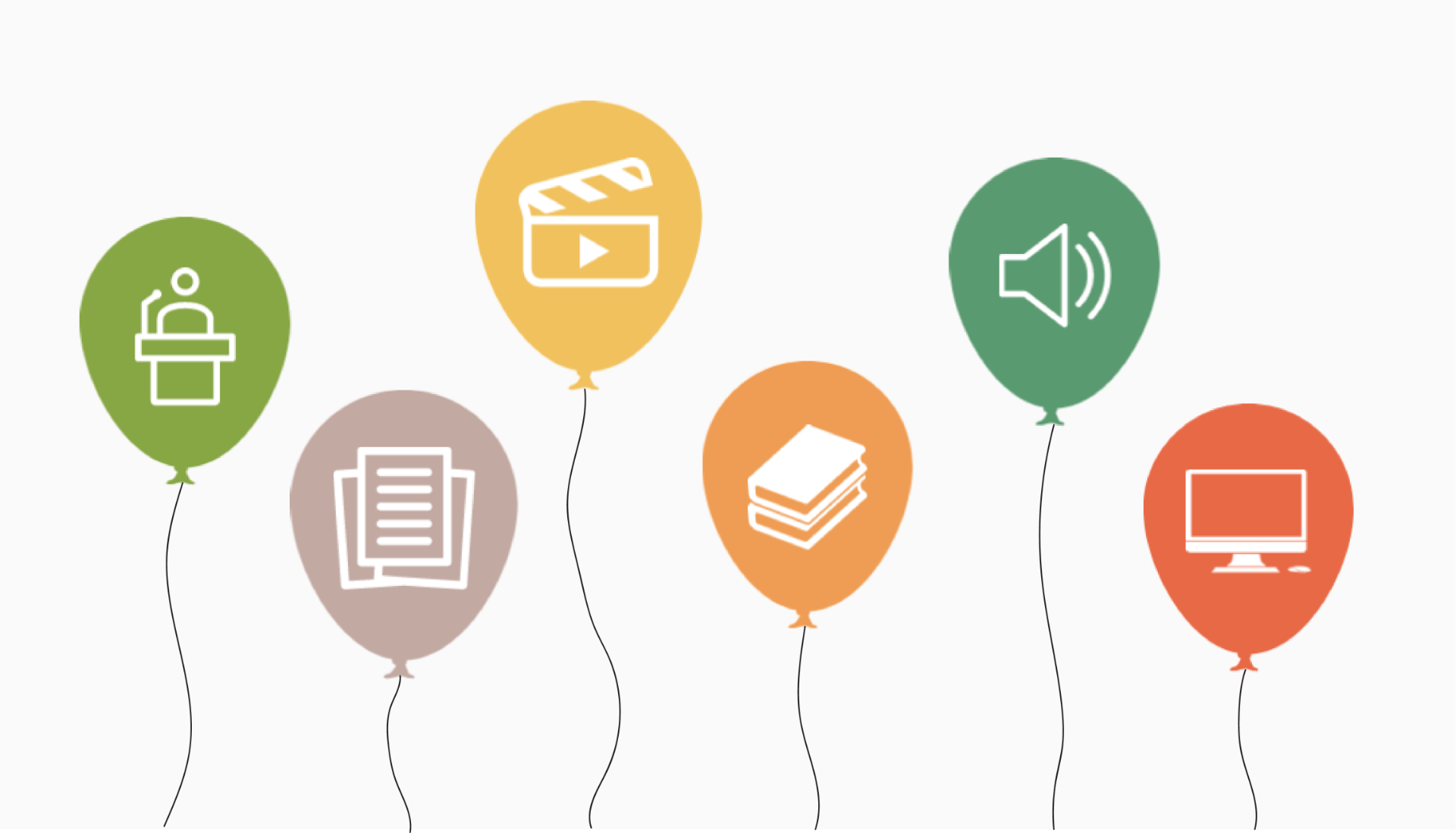Open Educational Resources (OER) are becoming a hot topic in higher education both as a resource to support textbook affordability practices and as a flexible pedagogical tool to customize and tailor course syllabi. An OER is anything published with an open license that allows it to be shared freely, edited, and reused. While open textbooks get the most attention, content in any format can be an OER: videos, podcasts, infographics, lesson plans, even entire courses. Because of open licensing, instructors who use OER materials can edit, add to, or combine resources to fine-tune their course syllabi instead of using a published resource as-is.
OER initiatives are gaining traction across campus, including the OER Grant Program, but it can be overwhelming for interested instructors to begin an OER project on their own. The University Libraries Scholarly Communications Team has designed an OER Community of Learning to provide a framework of knowledge and resources to campus stakeholders. Working as a cohort over the course of a semester, participants will explore the what, why, and how of getting started with OER.
The OER Community of Learning contains self-paced Canvas modules supplemented by live online workshops and discussion groups. The modules were created by librarians and peer reviewed by library staff and university faculty, staff, and administrators. The course will give participants the knowledge and support they need to pursue their own OER projects.
What is the Community of Learning?
The core of the OER Community of Learning is a self-paced Canvas course consisting of five peer-reviewed modules. These five modules teach fundamental concepts about OER, including:
- Introduction to OER
- Finding existing OER
- Using and creating OER
- Open Licensing
- Resources at Texas State to support OER use
In addition to the self-paced learning modules, participants will form a cohort to discuss and reinforce the concepts introduced in the course and explore ways to put this knowledge into practice on campus. Participants will attend discussion group sessions and workshops throughout the semester and interact with each other on the Canvas platform.
By the end of the course, participants should be able to describe the purpose and value of OER to their colleagues, find and evaluate existing OER content, identify different open licenses, and plan their next steps in incorporating OER into their course.
Who can participate?
For 2021-22, the course will be open to any learners who wish to participate.
What is required of the Community of Learning cohort participants?
Participants must complete the five Canvas modules and their accompanying quizzes and participate in each module’s online discussion board. The time commitment for the self-paced modules is an estimated 2.5 hours.
In addition to the modules, participants must attend two virtual discussions and at least one of three supplementary workshops that reinforce or add to the module content. Participants will write a brief reflection on one workshop they attended. These sessions total about 3-7 hours.
In all, participants will spend about 5.5-9.5 hours completing course requirements over the 11-week course period.
How long do participants have to complete the course?
This year, we will offer the course in two versions.
Long semester course (self-paced modules, workshops throughout the semester)
- Fall 2021 (October 4-December 17)
- Spring 2022 (February 28-May 13)
One-week intensive course (self-paced modules, one workshop per day)
- January 2022 interim (tentatively January 10-14)
- Summer 2022 (tentatively July 11-15)
Each course option will only be offered if at least 10 participants are registered within one week of the beginning of the course. Registration for each option closes 2 weeks after the start date. Participants who register for a course option that doesn’t make will be invited to register again for the next option they select.
What if I can’t commit to completing the entire course?
Even if you are unable to take part in the course, you are welcome to attend any of the live workshop sessions, which will be open to the entire campus. You may also indicate your interest in a future iteration of the course using the form below.
How do I sign up?
Indicate your interest in one or more of the course dates listed above using this form.
Whom can I contact with additional questions?
Please email the Scholarly Communications Team, scholcomm@txstate.edu, with any further questions.
This article was contributed by Research, Instruction & Outreach Librarian Jessica McClean.
